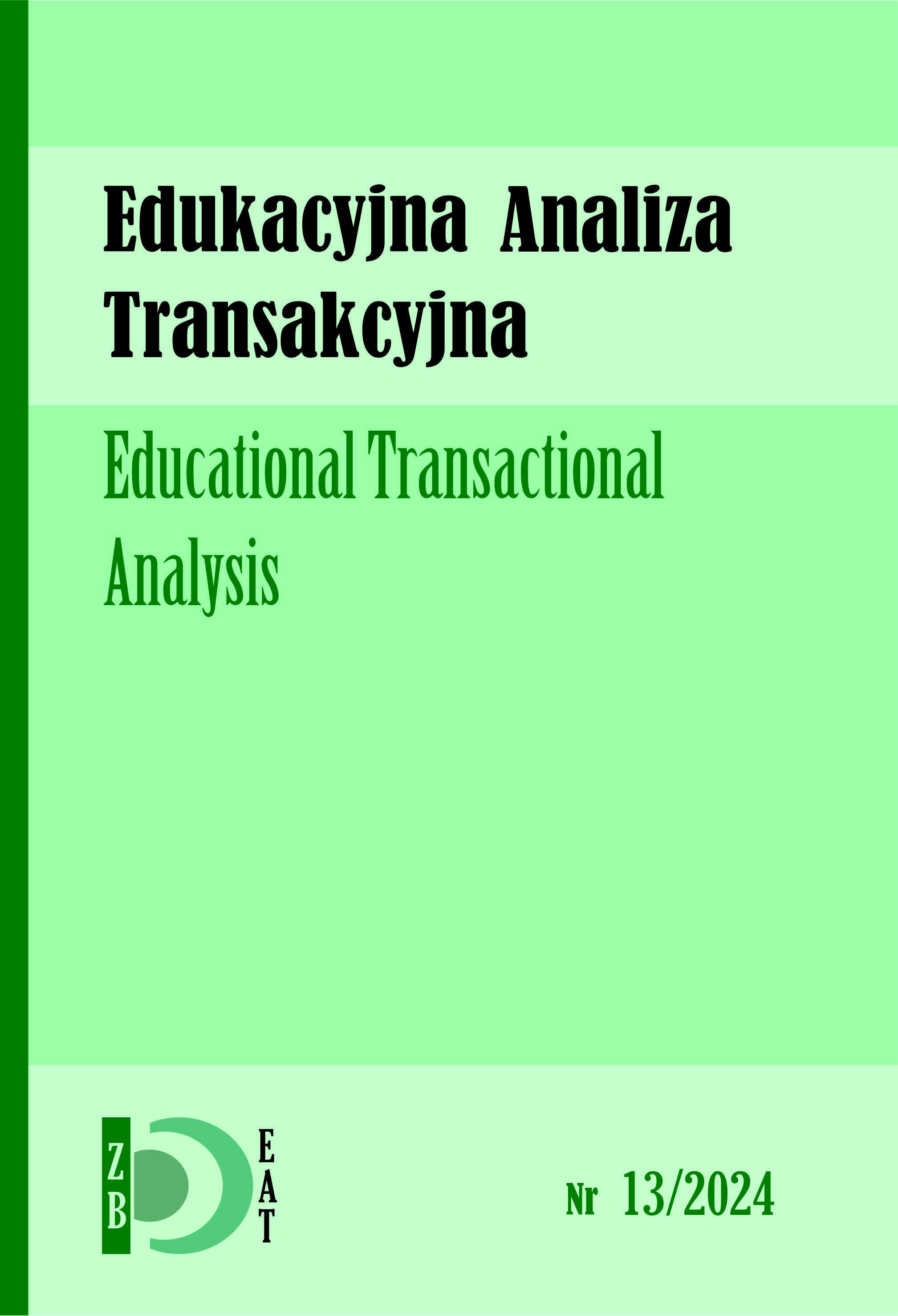Disability in the perception of students. Results of research on attitudes toward people with disabilities
DOI:
https://doi.org/10.16926/eat.2024.13.15Keywords:
Keywords: attitudes toward people with disabilities, students of pedagogical fields, students of non-pedagogical fieldsAbstract
The aim of the presented paper is to reveal selected results of research on the perception of people with disabilities and attitudes toward this group as declared by students from pedagogical and non-pedagogical fields of study.
The presented research was conducted with a group of 110 persons, divided into two equal subgroups: 55 students from pedagogical programs and 55 students from non-pedagogical programs. The diagnostic survey method and questionnaire technique were used, utilizing a survey questionnaire. The pilot study presented, allows for the following conclusions:
- The majority of the surveyed students have a positive perception of individuals with disabilities and exhibit positive social attitudes towards them, with ambivalent attitudes being significantly less frequent. There are also a few negative declarations, but these are relatively rare.
- The differences between students from pedagogical and non-pedagogical programs regarding their attitudes towards individuals with disabilities are relatively minor and generally not statistically significant. Statistical significance was only found in one case, concerning the emotional and volitional components of negative attitudes (specifically the belief that individuals with disabilities are a "burden" to family and society). This situation requires further analysis.
- It can be assumed that the attitudes declared by the students towards individuals with disabilities are related to various other factors that influence their overall social perception, internalized patterns of interpersonal behaviour, and, most importantly, direct interactions with people with disabilities.
Downloads
References
Aronson, E., Wilson, T. D., & Akert, R. M. (1997). Psychologia społeczna. Serce i umysł. Wydawnictwo ZYSK i S-KA.
Chan, M., & Zoellick, R. B. (2013). Światowy raport o niepełnosprawności WHO. In Niepełnosprawność - zagadnienia, problemy, rozwiązania, Nr I(6).
Gazdulska, M. (2008). Postawy społeczeństwa wobec osób z niepełnosprawnościami w ujęciu historycznym i współczesnym. Seminare. Poszukiwania naukowe, 25, 281–288.
Gąciarz, B. (2014). Integracja społeczna osób niepełnosprawnych jako wyzwanie dla nauki i praktyki społecznej. Studia Socjologiczne, 2(213), 7–14.
Kazanowski, Z. (2015). Społeczny wymiar współczesnej koncepcji niepełnosprawności intelektualnej. Annales Universitatis Mariae Curie-Skłodowska, sectio J - Paedagogia, 28(1), 33–43. https://doi.org/10.17951/j.2015.28.1.33
Kirenko, J. (2007). Indywidualna i społeczna percepcja niepełnosprawności. Wydawnictwo Uniwersytetu Marii Curie-Skłodowskiej w Lublinie.
Larkowa, H. (1970). Postawy otoczenia wobec inwalidów. Warszawa: PZWL.
Marszałek, L. (2023). Społeczny kontekst niepełnosprawności. Seminare. Poszukiwania naukowe, 24, 339–353. https://doi.org/10.21852/sem.2007.24.25
Mika, S. (1972). Wstęp do psychologii społecznej. Warszawa: PWN.
Ostrowska, A. (2015). Niepełnosprawni w społeczeństwie 1993-2013. Wydawnictwo Instytutu Filozofii i Socjologii PAN.
Segiet, K. (2015). Rodzina jako przestrzeń życia (dla) współczesnej młodzieży. W K. Segiet (Red.), Młodzież w dobie przemian społeczno-kulturowych (s. 35–45). Wydawnictwo Uniwersytetu im. Adama Mickiewicza.
CBOS. (2007). Postawy wobec osób niepełnosprawnych. Komunikat z badań (BS/169/2007). https://www.cbos.pl/SPISKOM.POL/2007/K_169_07.PDF
Sękowski, A. E. (1994). Psychospołeczne determinanty postaw wobec inwalidów. Wydawnictwo Uniwersytetu Marii Curie-Skłodowskiej w Lublinie.
Tomczyszyn, D., Pańczuk, A., & Szepeluk, A. (2022). Postawy studentów wobec osób z niepełnosprawnościami. Niepełnosprawność i rehabilitacja, 2, 33–48. https://doi.org/10.15290/cnisk.2024.02.17.08
Downloads
Published
How to Cite
Issue
Section
License
Copyright (c) 2024 Beata Górnicka

This work is licensed under a Creative Commons Attribution 4.0 International License.
I am aware that the Educational Transactional Analysis journal is published under a Creative Commons license - Attribution (https://creativecommons.org/licenses/by/4.0/legalcode).
By submitting the article, I agree to make it available under this license

